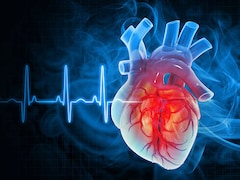Let's look at seven space diet tips you can adopt in your everyday life.

7 Tips You Can Follow From Nasa's Space Diet
Astronauts need to maintain peak physical and mental health while orbiting Earth, and their diet is a critical part of that success. NASA's space diet is designed to provide balanced nutrition, boost immunity, support brain function, and maintain muscle and bone strength in extreme environments. While we're grounded on Earth, these principles can inspire healthier eating habits in our daily lives. According to NASA and supported by the Academy of Nutrition and Dietetics, space diets focus on nutrient-dense, low-sodium, and well-portioned meals that can be easily adapted for better health and long-term wellness on Earth too.
Why NASA's space diet can benefit everyone
NASA's food scientists craft astronaut diets with intense precision, ensuring maximum nutrition with minimal weight and waste. This same level of nutrient-dense, low-processed food consumption has been recommended by global organisations such as the World Health Organisation (WHO) and the Centres for Disease Control and Prevention (CDC). Let's look at seven space diet tips you can adopt in your everyday life.
1. Focus on nutrient-dense foods
Astronauts don't have space (literally) for empty calories. Their meals are packed with essential vitamins, minerals, fibre, and protein. Include foods like leafy greens, whole grains, lentils, and nuts to get more nutrients per bite.
2. Keep sodium low
NASA reduces sodium to manage fluid retention and prevent blood pressure spikes in space. On Earth, this helps with heart health and reduces the risk of hypertension, as confirmed by the American Heart Association.
3. Prioritise lean proteins
High-quality protein is a must to counteract muscle loss in zero gravity. Include lean meats, tofu, legumes, and dairy to help build muscle and repair tissue, a tip beneficial to both astronauts and Earth-dwellers alike.
4. Include shelf-stable whole foods
NASA uses dehydrated fruits, vacuum-packed grains, and freeze-dried vegetables. These shelf-stable versions retain nutrients without preservatives. Stock your pantry with similar items for quick, healthy meals that are low on additives.
5. Stay hydrated consistently
Fluid regulation is tricky in space, so astronauts monitor water intake closely. On Earth, hydration supports metabolism, skin health, and brain function. The WHO recommends at least 2–2.5 litres of water daily for adults in moderate climates.
6. Limit sugar and processed foods
Space diets eliminate added sugars and heavily processed snacks. Following this on Earth can help regulate blood sugar, reduce inflammation, and lower the risk of chronic diseases like obesity and diabetes.
7. Use portion control and mindful eating
Space missions require carefully portioned meals to ensure nutrient balance. Back on Earth, this practice helps manage weight and prevents overeating. Use smaller plates, read labels, and chew slowly to stay in tune with hunger cues.
While we may never leave Earth's atmosphere, the logic behind NASA's space diet is universal. Emphasising whole foods, hydration, and nutrient-rich meals with minimal sodium and sugar, these tips align with guidelines by global health bodies like the WHO. Integrating even a few of these space-tested habits into your daily routine could lead to a healthier, more energised life on Earth.
Disclaimer: This content including advice provides generic information only. It is in no way a substitute for a qualified medical opinion. Always consult a specialist or your own doctor for more information. NDTV does not claim responsibility for this information
DoctorNDTV is the one stop site for all your health needs providing the most credible health information, health news and tips with expert advice on healthy living, diet plans, informative videos etc. You can get the most relevant and accurate info you need about health problems like diabetes, cancer, pregnancy, HIV and AIDS, weight loss and many other lifestyle diseases. We have a panel of over 350 experts who help us develop content by giving their valuable inputs and bringing to us the latest in the world of healthcare.














